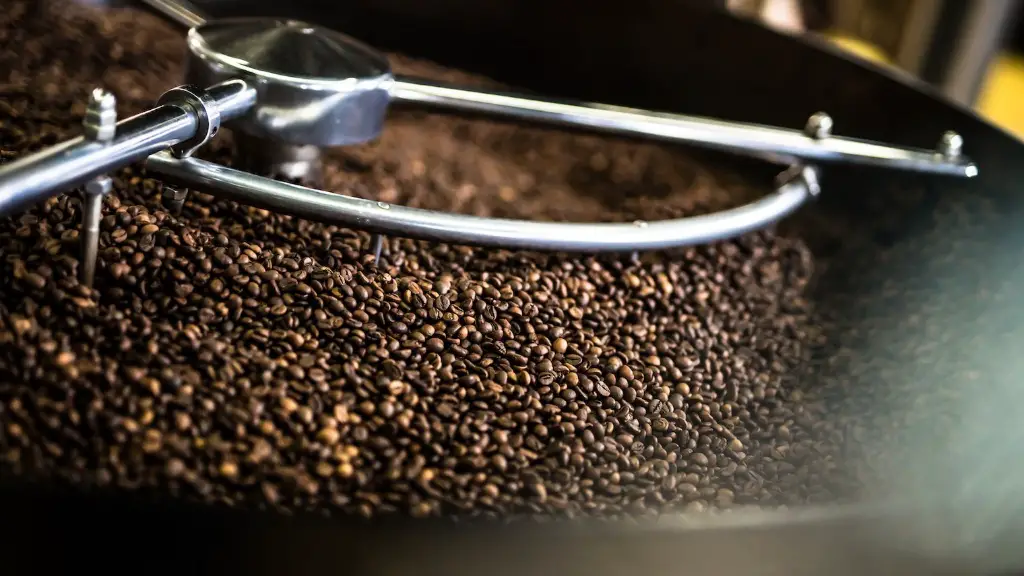How much coffee can you drink while breastfeeding? Many new mothers may want to drink coffee for an energy boost, but many are also unsure as to how this affects their baby. The amount of coffee that a mother can drink while breastfeeding depends on many factors, including their body and the composition of their milk. This article will provide an overview and offer some advice on drinking coffee while breastfeeding.
Chemistry of Coffee
When a mother drinks coffee, the caffeine and other molecules in the coffee pass into her bloodstream. The amount of time it takes for this to happen depends on the type and amount of coffee consumed. The bloodstream then carries the caffeine to the milk, where it passes into the baby’s system. It usually takes between 1 and 3 hours for a cup of coffee to reach the milk.
In general, moderate amounts of caffeine are unlikely to harm the baby, but larger amounts may lead to irritability and sleeplessness for the baby. It is worth noting that some studies have found that caffeine intake during breastfeeding may lead to shorter durations of sleep for the baby and even lower birth weight.
Calculating Your Intake
When deciding how much caffeinated coffee to drink while breastfeeding, it is best to be informed about the caffeine content of various drinks and work out how much caffeine you are ingesting. Generally, an 8oz cup of brewed coffee contains approximately 150 mg of caffeine and an 8oz cup of espresso contains approximately 75mg of caffeine. It is important to note that different types and amounts of coffee can affect the amount of caffeine that is passed on.
If a mother chooses to drink caffeinated coffee while breastfeeding, it is best for them to limit their intake. The American Pregnancy Association recommends that pregnant women limit their caffeine intake to no more than 200mg per day.
How Caffeine Affects You
When it comes to determining how much coffee to drink while breastfeeding, it is important to take into consideration how caffeine affects the mother. Caffeine is a stimulant and if consumed in too large of an amount, it can lead to insomnia, jitteriness, and nervousness. Caffeine can also act as a diuretic and cause dehydration, leading to fatigue, headaches, and general achiness.
Therefore, it is important to be aware of the effects that caffeine may have on the mother and take care not to consume too much. It is also important to note that caffeine has a different effect on each individual based on their body weight and how quickly they metabolize the caffeine.
Other Alternatives
It is important to note that there are many other alternatives for an energy boost that do not involve caffeine. For example, drinking herbal teas, exercising, and increasing one’s iron intake are all good alternatives to drinking coffee while breastfeeding.
Though many herbal teas do contain caffeine (usually between 10mg and 50mg per serving), there are many brands that offer caffeine-free teas, such as chamomile or peppermint. For example, organic mother’s milk tea, specifically designed to aid lactation and breastfeeding, is a great alternative to caffeinated coffee.
Consider Supplementing with Fluids
When it comes to drinking coffee while breastfeeding, it is also important to consider supplementing with fluids to prevent dehydration. When caffeine is ingested, it has an effect on the body’s water balance, where it makes it harder to reabsorb water in the kidneys, resulting in increased urination. To counteract this effect, it is important to drink plenty of water and other fluids to ensure that the body remains hydrated.
Foods Rich in Iron
Adding foods that are rich in iron to one’s diet can also help to decrease fatigue and provide an energy boost. Iron plays an important role in the body by transporting oxygen in red blood cells, as well as playing a role in the production of energy. To increase iron intake, some good sources of iron include red meat, eggs, fortified breakfast cereals, dark leafy greens, and legumes.
Exercise as an Alternative
Exercise is also a great alternative for an energy boost for both mother and baby, as it promotes better sleep, improves mood, and increases energy levels. Studies have shown that regular exercise can also improve a baby’s development and slow the postpartum weight loss. When exercising, it is important to take into account how it will affect the baby, as heavy or intense workouts may be too much for the baby. Light exercise is best, and it may even be beneficial for the baby to join in on the activity.
Consult with a Healthcare Professional
When deciding how much coffee to drink while breastfeeding, it is always best to consult with a healthcare professional. They will be able to provide advice and answer any questions related to the mother’s individual situation. Healthcare providers can also provide advice on alternative methods of obtaining an energy boost, such as healthy eating, moderate exercise, and time management.
Conclusion
Drinking coffee while breastfeeding is possible, but it is important to be informed and not overdo it. It is best to limit caffeine intake and use other methods to obtain an energy boost, such as increasing iron intake, drinking herbal teas, and exercising. By being informed and consulting with a healthcare provider, mothers can make an informed decision and make sure that both they and the baby get the energy boost they need.



